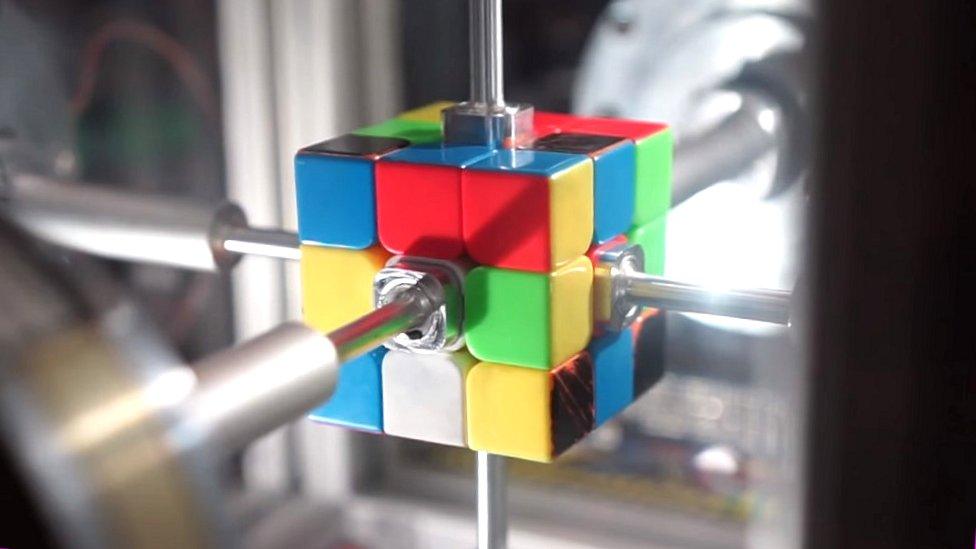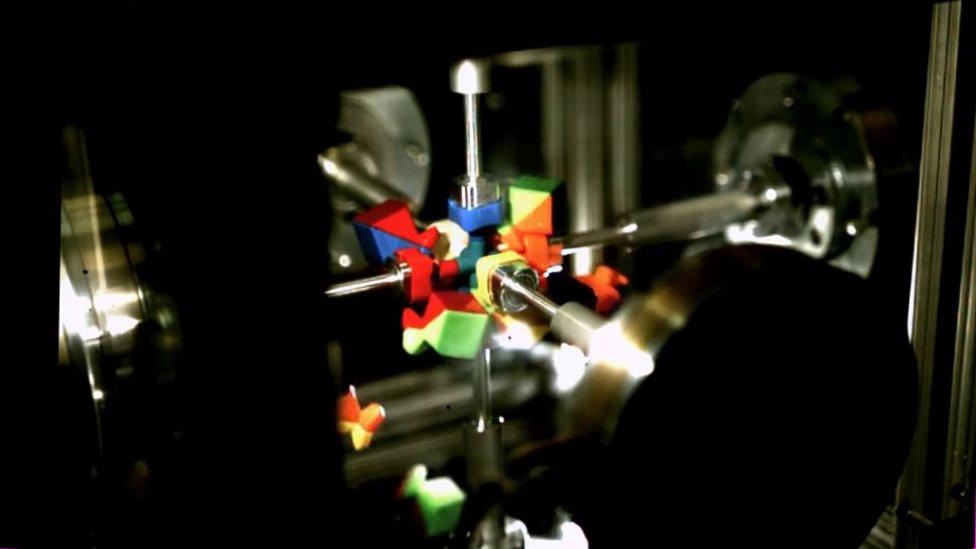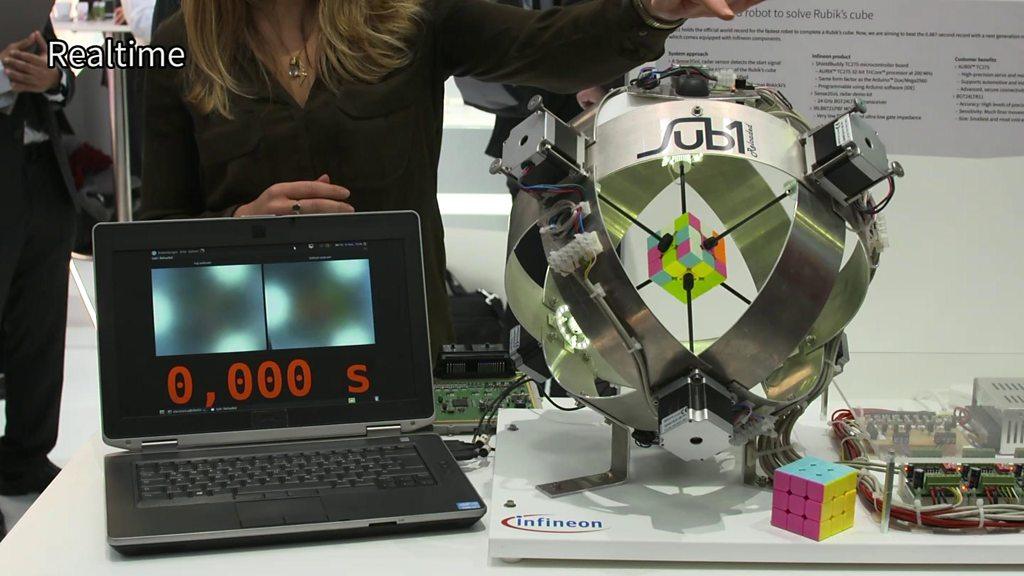Rubik's robot solves puzzle in 0.38 seconds
- Published

A robot that can solve a Rubik's cube puzzle in 0.38 seconds has been developed by two researchers in the US.
The current world record is 0.637 seconds, which was set by German engineer Albert Beer and his robot Sub1 Reloaded.
The researchers realised they could solve the cube more quickly by using a different type of motor in their robot.
They suggested the contraption could be tweaked to go faster but said they had "lost interest" in tuning the device.
Allow YouTube content?
This article contains content provided by Google YouTube. We ask for your permission before anything is loaded, as they may be using cookies and other technologies. You may want to read Google’s cookie policy, external and privacy policy, external before accepting. To view this content choose ‘accept and continue’.
Ben Katz, a student at the Massachusetts Institute of Technology, collaborated with Jared Di Carlo to create the robot.
"We noticed that all of the fast Rubik's Cube solvers were using stepper motors and thought that we could do better if we used better motors," said Mr Di Carlo in a blog post, external.
Mr Katz said in his blog, external the 0.38 seconds included "image capture and computation time, as well as actually moving the cube".
Their contraption used two PlayStation Eye cameras from the old PS3 console to identify the configuration of the cube.
However, mistakes often resulted in a cube being destroyed.

Several cubes were destroyed
The system also had difficulty identifying the difference between the red and orange sides of the cube, so the researchers scribbled on the orange sides with a black marker pen.
The motors took about 10 milliseconds to turn a side of the cube, with each move taking about 15 milliseconds in total.
Mr Katz suggested the machine could be refined but described the process as "time consuming".
"For the time being, Jared and I have both lost interest in playing the tuning game, but we might come back to it eventually and shave off another 100 milliseconds or so," he wrote.
The current record held by Mr Beer was recognised by Guinness World Records in 2017.
- Published9 November 2016
